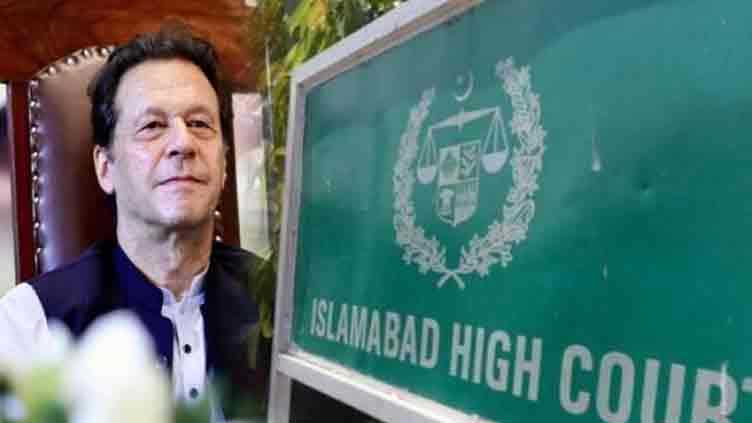IHC hears incarcerated Imran Khan's plea for meetings with PTI leaders tomorrow

Pakistan
IHC chief justice removes objections raised by Registrar's Office
ISLAMABAD (Dunya News) – Incarcerated former prime minister Imran Khan’s petition filed with the Islamabad High Court regarding the denial of meetings and consultations with his party leaders and lawyers has been fixed for hearing.
IHC Chief Justice Aamer Farooq, who took up Khan’s plea on Wednesday, removed the objections raised by the Registrar's Office before setting the petition for hearing.
During the proceedings, lawyer Shoaib Shaheen, representing the PTI founder, informed the court that his client had listed the Defence Ministry as a respondent in the petition, when asked how a major and a colonel could be made party.
Subsequently, the court set the petition for hearing on Thursday (tomorrow).
Imran Khan, currently held in Rawalpindi’s Adiala Jail, has named the Interior Ministry, Defence Ministry, home secretary, Punjab government and jail superintendent as respondents in his petition.
The petition argues that despite court orders, the jail superintendent has prohibited meetings with lawyers and party leaders.
Previously, the Islamabad High Court had permitted consultations between Imran Khan and his party leaders for the allocation of party tickets for the Feb 8 general elections.
The petition claims that due to the ill intentions of his opponents, the process of consulting for the allocation of party tickets was obstructed.
The plea asserts that officials from intelligence agencies oversee all jail operations, hindering the PTI founder's ability to consult with party leaders.
The petition contrasts Imran Khan's treatment with that of former prime minister Nawaz Sharif, who was allowed to meet 15 people daily during his imprisonment.
The former premier has requested the court to grant him permission to consult with party leadership on various issues and to prevent intelligence agencies from meddling in civil administration affairs.


